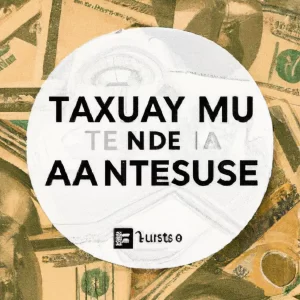Understanding the Gift Tax Exemption Limits for 2022
Have you ever wondered how much money you can receive as a gift without worrying about taxes in 2022? As experienced legal professionals at Morgan Legal Group in New York City, we understand the complexities of estate planning and gift taxation. In this article, we will delve into the specifics of gift tax laws and explore the limits that individuals must consider when giving and receiving gifts in the upcoming year. Join us as we unravel the mysteries surrounding gift taxes and provide clarity on how much money you can give or receive without incurring tax consequences.
When it comes to the gift tax exemption limits for 2022, it is important to understand how much money you can receive as a gift without paying taxes. The IRS has set the annual exclusion for gifts at $16,000 per recipient, meaning that you can give up to $16,000 to an individual without having to pay any gift tax. This limit applies to each person receiving the gift, so if you are married, you and your spouse can each give $16,000 to the same individual without incurring any taxes.
It is also worth noting that the lifetime gift tax exemption for 2022 is $12.06 million per person. This means that you can give gifts totaling up to $12.06 million over your lifetime without having to pay any gift tax. However, any gift amount that exceeds the annual exclusion of $16,000 will count towards your lifetime exemption limit. Consulting with an experienced estate planning attorney can help you navigate the complexities of gift tax laws and ensure that you are making informed decisions when it comes to giving gifts.
Strategies to Maximize Gift Giving Without Incurring Taxes
When it comes to maximizing gift-giving without incurring taxes in 2022, it’s essential to understand the current gift tax laws and limits. As of this year, individuals can give up to $15,000 per person per year without triggering gift taxes. This means that you can gift up to $15,000 to as many people as you like without having to pay
 Understanding Gift Tax Exemptions for 2022: How Much Money Can You Receive Without Paying Taxes
Understanding Gift Tax Exemptions for 2022: How Much Money Can You Receive Without Paying Taxes
Introduction:
Gifts are a way to show love, appreciation, and care for our loved ones, especially during special occasions like birthdays, weddings, and holidays. While giving a gift may seem like a simple gesture, it is important to know that there are tax implications associated with them. Many people wonder, how much money can I receive as a gift without paying taxes in 2022? To help you understand the tax laws and exemptions associated with gifts, we have put together this comprehensive guide.
Gift Tax Exemptions Explained:
The United States tax law mandates that any gift or inheritance above a certain limit is subject to gift tax. However, there are certain exemptions in place that allow you to give and receive gifts without paying taxes. The gift tax exemptions are set by the Internal Revenue Service (IRS) and are subject to change every year. For 2022, the IRS has announced an increase in gift tax exemptions, giving more room for tax-free gifts.
The Annual Gift Tax Exclusion:
One of the most commonly known exemptions is the annual gift tax exclusion. This allows an individual to gift up to $15,000 per person per year without incurring any tax liability. This means you can give gifts up to $15,000 to as many people as you want without having to worry about taxes. For example, if you have two children and four grandchildren, you can give each of them $15,000 without any tax consequences. Furthermore, married couples can combine their annual gift tax exclusions, allowing them to gift up to $30,000 to an individual without any taxes.
Lifetime Gift Tax Exemption:
Apart from the annual gift tax exclusion, the IRS also allows a lifetime gift tax exemption. This exemption allows individuals to gift a certain amount of money over their lifetime without paying any gift taxes. For 2022, the lifetime gift tax exemption has been set at $11.7 million for individuals and $23.4 million for married couples. This means that any gifts you give above the annual exclusion of $15,000 will be counted towards your lifetime gift tax exemption. It is important to note that this exemption also includes the value of any gifts given in previous years.
Gifts That Do Not Count Towards the Exemptions:
It is important to understand that not all gifts are subject to gift taxes, even if they exceed the annual or lifetime exclusions. The following are gifts that do not count towards the exemptions and are considered tax-free:
– Gifts given to a spouse: If you are married, you can give unlimited gifts to your spouse without incurring any gift taxes.
– Gifts given to a qualified charity: Any gifts given to a qualified charity are not subject to gift tax.
– Tuition expenses: You can pay for someone’s tuition expenses without incurring any gift tax, as long as you make the payment directly to the educational institution.
– Medical expenses: Similarly, you can pay for someone’s medical expenses without any gift tax implications as long as you pay the provider directly.
Practical Tips to Maximize Your Tax-Free Gifts:
Now that you understand the gift tax exemptions, here are some practical tips to help you maximize your tax-free giving:
– Use your annual gift tax exclusion: As mentioned earlier, you can gift up to $15,000 to as many people as you want without any tax consequences. Utilize this exemption to give gifts to your loved ones without having to worry about taxes.
– Keep track of your lifetime gift tax exemption: It is important to keep track of how much of your lifetime gift tax exemption you have used. This will help you avoid exceeding the exemption and incurring gift taxes.
– Take advantage of gift splitting: If you are married, you can utilize gift splitting by combining your annual gift tax exclusions. This allows you to gift up to $30,000 to an individual without any taxes.
– Consider gifting assets instead of cash: Instead of giving cash, you can gift assets that have a lower value, such as stocks or real estate. This can help you save on taxes and allow you to give more valuable gifts.
Potential Consequences of Not Paying Gift Taxes:
Failing to pay gift taxes when required can result in penalties and interests imposed by the IRS. In some cases, the recipient of the gift may also be required to pay the gift taxes. It is important to report any gifts that exceed the annual or lifetime exclusion to the IRS and pay the associated taxes to avoid any consequences.
Case Study:
To better understand how gift tax exemptions work, let’s take a look at an example. John, a married man, wants to gift his daughter $25,000 for her wedding in 2022. His wife will also contribute $25,000 towards the wedding. Here’s how the gift tax exemptions will work for this scenario:
– John can gift his daughter $15,000, utilizing the annual gift tax exclusion.
– His wife can also gift their daughter $15,000, utilizing her annual gift tax exclusion.
– John and his wife can combine their annual gift tax exclusions and gift their daughter an additional $20,000, utilizing gift splitting.
– The remaining $5,000 will be counted towards their lifetime gift tax exemption.
In Conclusion:
Gifts are a great way to show love and appreciation to your loved ones, but they also have tax implications. Understanding the gift tax exemptions for 2022 can help you give and receive gifts without any tax consequences. Utilize your annual and lifetime gift tax exclusions, keep track of your gift taxes, and you can enjoy the joy of giving without any tax burden.
References:
1. IRS.gov
2. Investopedia.com
3. Money.usnews.com
4. Forbes.com






